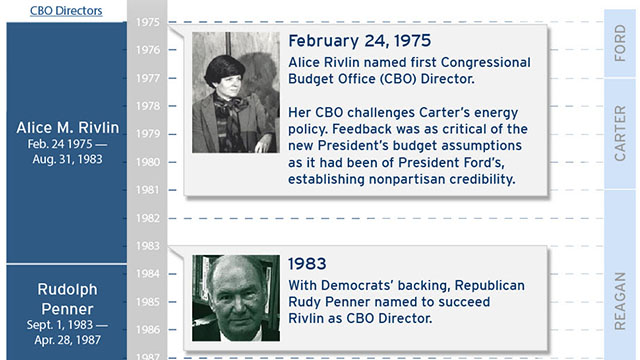The Congressional Budget Office gets lots of attention, because the price tags it puts on spending bills matter to Congress and because it has established itself as a non-partisan, credible, although occasionally controversial, institution at a time marked by partisanship and institutions that lack credibility.
As CBO turns 40, the Hutchins Center on Fiscal and Monetary Policy is taking a look at what accounts for the agency’s survival, what it does well and not so well and what challenges it faces. This examination comes at a pivotal moment for CBO: The Republican leadership of Congress is now weighing candidates for CBO director to succeed Doug Elmendorf.
Click on the image below to explore key moments in the CBO’s history:
We’ve asked Philip Joyce, a professor of public policy at the University of Maryland and author of one of the very few books on CBO, to describe the agency’s evolution—and on Monday, Feb. 23, he and a panel of consumers of CBO data and analyses from Congress and the private sector will give their thoughts on CBO’s past, present and future. You can register for the event or watch the webcast on Monday morning at 10:45.
The Brookings Institution is committed to quality, independence, and impact.
We are supported by a diverse array of funders. In line with our values and policies, each Brookings publication represents the sole views of its author(s).




Commentary
The CBO: past, present and future
February 13, 2015